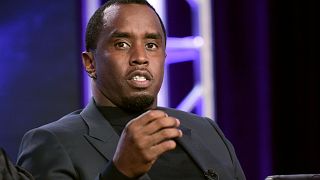CapeVerde
Cape Verdeans have put their trust in outgoing Prime Minister Ulisses Correia e Silva to turn around the archipelago's economy, which has been heavily impacted by the coronavirus pandemic, by granting a large victory to his center-right formation in Sunday's legislative elections, according to near-complete results released overnight.
In power since 2016, the 58-year-old head of government, a former senior executive of the Bank of Cape Verde, ex-minister and ex-mayor of the capital Praia, claimed before the press his victory, celebrated at the same time by his supporters in front of his party headquarters and in the rest of the city.
"It is a great victory, the victory of Cape Verde. We managed to convince the Cape Verdeans of the correctness of the government's line of action during a very difficult period and of the correctness of our proposals for the future," said Correia e Silva.
His party, the Movement for Democracy (MpD), won 36 of the 72 seats in the National Assembly, according to the results of the national electoral commission, which covered almost 98.2 percent of the polling stations.
The party, which had 40 elected members in the outgoing assembly, can expect to win at least 37 deputies, synonymous with an absolute majority, when the results of the last three diaspora seats still to be counted are known.
In any case, the center-right formation is ahead of Janira Hopffer Almada's PAICV (socialist), which has 29 seats, as in 2016.
The candidate of the former single party, a 42-year-old former minister, thus loses her bid to bring the historic left-wing formation back to power and become the first woman to head the government of the former Portuguese colony.
In front of her supporters, she acknowledged her defeat, congratulated the outgoing prime minister and announced her forthcoming resignation from the leadership of her party, of which she had become the first woman to assume the presidency in 2014.
Economy battered by coronavirus
The elections took place at a time when the country's economy has been severely affected by the epidemic.
Last year, the archipelago of 550,000 inhabitants located about 600 km off the coast of Senegal, which is heavily dependent on tourism -25% of its GDP-, recorded a historic recession of 14.8%.
The country has recorded a total of 20,254 infections with Covid-19 and 190 deaths, relatively low figures compared to the situation elsewhere in the world.
But it is currently experiencing a major surge and its incidence rate of 189 cases per 100,000 population is the highest in Africa, according to figures for the period April 5 to 11.
To boost the economy, both leading candidates have promised to provide vaccinations to a large part of the population and to diversify the country's income.
Ulisses Correia e Silva, who has a modern, grassroots image, had the added advantage of more experience than his opponent.
Model of democracy
"He has demonstrated his skills, he has proven himself. It was important to keep a form of continuity in this difficult period that is the Covid", congratulated after the announcement of his victory one of his young voters of 25 years dressed in a red T-shirt, the color of the party, Cleidiria Fernandes Moreira.
Far behind the two major parties, the Cape Verdean Independent and Democratic Union (Ucid, Christian Democrat) won 4 seats, according to these partial results. Three other small parties also in the running will not be elected.
Since the free elections of 1991, the small West African country has been considered a model of democracy on the continent and has not recorded any incident of violence related to the elections and their results.
"Stability (...) is our oil, our diamond," Correia e Silva told AFP a few days before the election.
Cape Verde has a semi-parliamentary system where the Prime Minister dominates the executive, with the President (Jorge Carlos Fonseca, MpD) acting as an arbitrator.
AFP












Go to video
Togo suspends French state-owned broadcasters RFI and France 24
Go to video
Protesters gather in Ivory Coast, demand Thiam's return on electoral list
02:13
Cameroon: Police, opposition supporters clash as election looms
01:25
Burundi awaits results of local and parliamentary elections
Go to video
Chad detains former prime minister Masra after deadly clashes
Go to video
Ivory Coast: Tidjane Thiam quits as opposition party leader